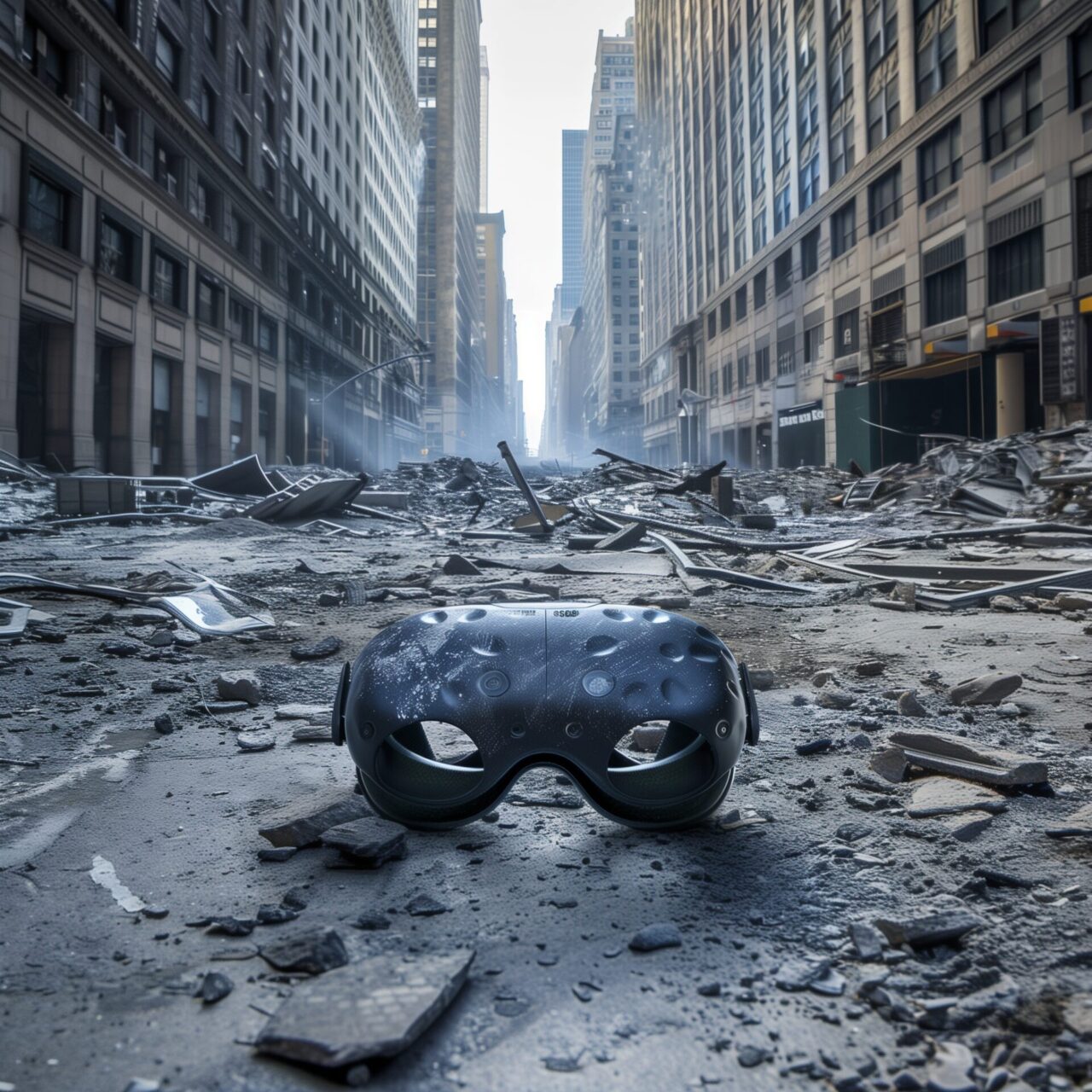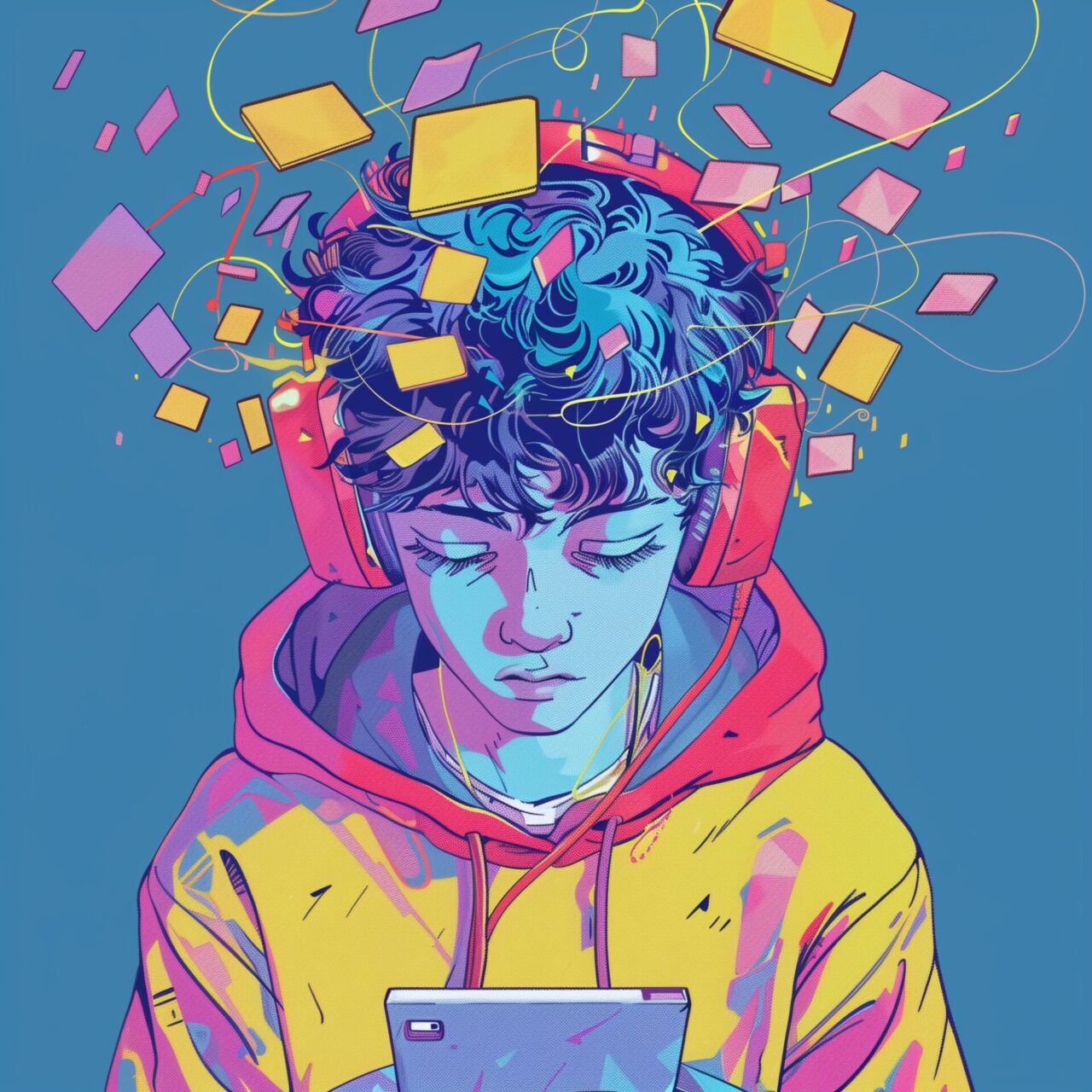
Between pixels and ruins
At a time when our digital footprints often seem more permanent than concrete, literature and film have begun to explore a fascinating dichotomy: Worlds in which physical reality crumbles while virtual realities are in full bloom. These narratives are not just fantastical escapes or bleak dystopias, but also astute commentaries on our increasingly digitalised lives.
A world in shambles
The scenario is often similar: ecological disasters, economic collapse or social upheaval have turned the ‘real world’ into a shadow of its former self. Cities decay, governments fall and society splits into those who have and those who have not. But while the world outside the window is withering away, inside, behind glowing screens, vibrant digital landscapes are flourishing.
The digital Garden of Eden
The antithesis of these dystopian real worlds are often immaculate virtual realities that serve as sanctuaries. In these digital domains, such as those presented in Ernest Cline’s “Ready Player One” or in the “Matrix” trilogy, individuals not only find refuge from the rigours of their everyday lives, but also opportunities for self-realisation that have become unattainable in the physical world. In Cline’s novel, people spend the majority of their lives in the OASIS, a gigantic, multi-layered VR game that provides a welcome distraction from the desolate Earth.
The duality of reality
From a scientific perspective, these narratives offer interesting insights into human behaviour and technological dependence. The escape into virtual worlds can be seen as a metaphor for our own online habits, from social media to endless streaming services. Psychologists such as Sherry Turkle have pointed out that these digital lives alter our perceptions of identity and community, often at the expense of genuine interpersonal connections.
The irony of reality
There is an unmistakable ironic quality to the portrayal of these worlds. Films and novels such as “Blade Runner 2049” or Dave Eggers’ “The Circle” use the disintegrating real world and flourishing virtual realities as critical lenses to illuminate the extremes of capitalism and dehumanisation through technology. They raise questions about the sustainability of our current economic system and the moral cost of our dependence on technology.
Virtual reality as the canvas of modernity
Pop culture has readily embraced this subject matter, partly because it allows for visually stunning storytelling, but also partly because it is deeply rooted in the fears and hopes of contemporary society. Series like “Black Mirror” or films like “Inception” play with the idea of reality construction and challenge audiences to question the nature of their own reality.
More than just fiction
The depiction of disintegrating real worlds and flourishing virtual realities in literature and film is more than just entertainment. It is an ongoing exploration of what it means to live in a world increasingly defined by the digital spaces we construct and inhabit. These works challenge us to think about the long-term consequences of our current obsession with technology and how we might one day find the balance between our crumbling cities and our digital utopias. In a world that is simultaneously crumbling and shining, perhaps the biggest question remains: what reality do we ultimately want to live in?


